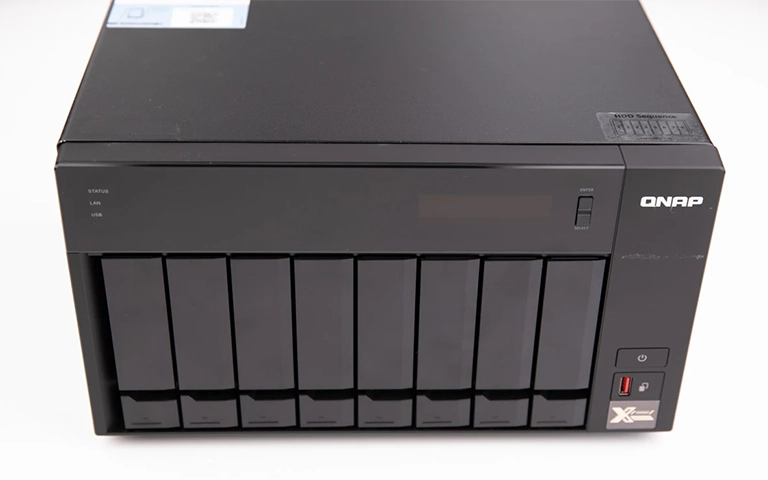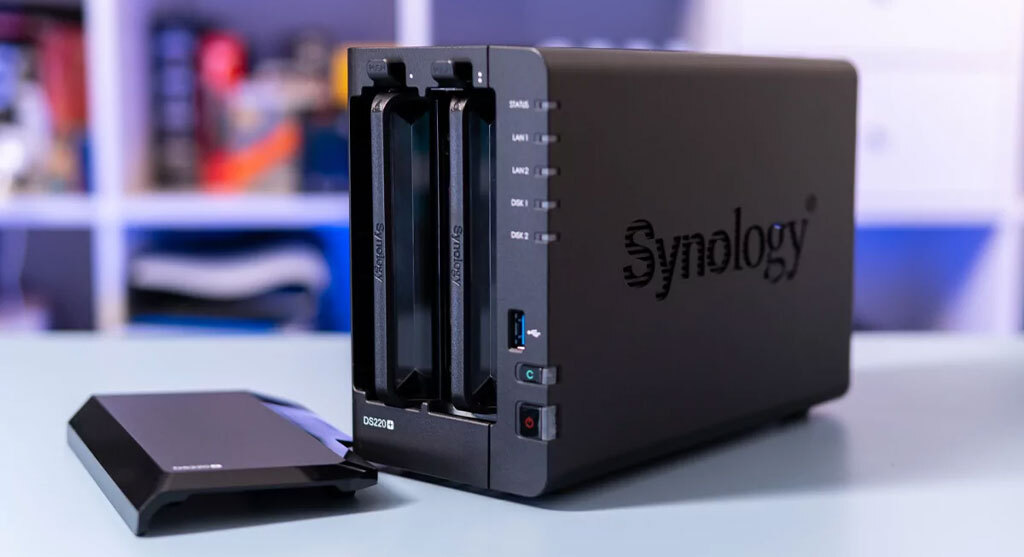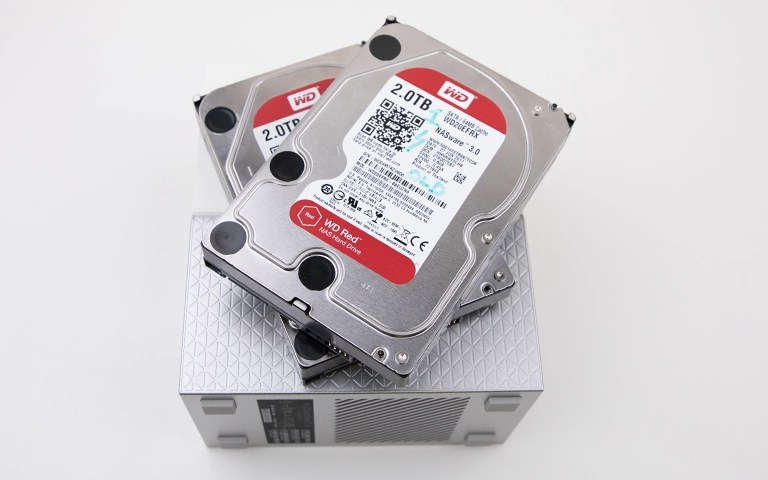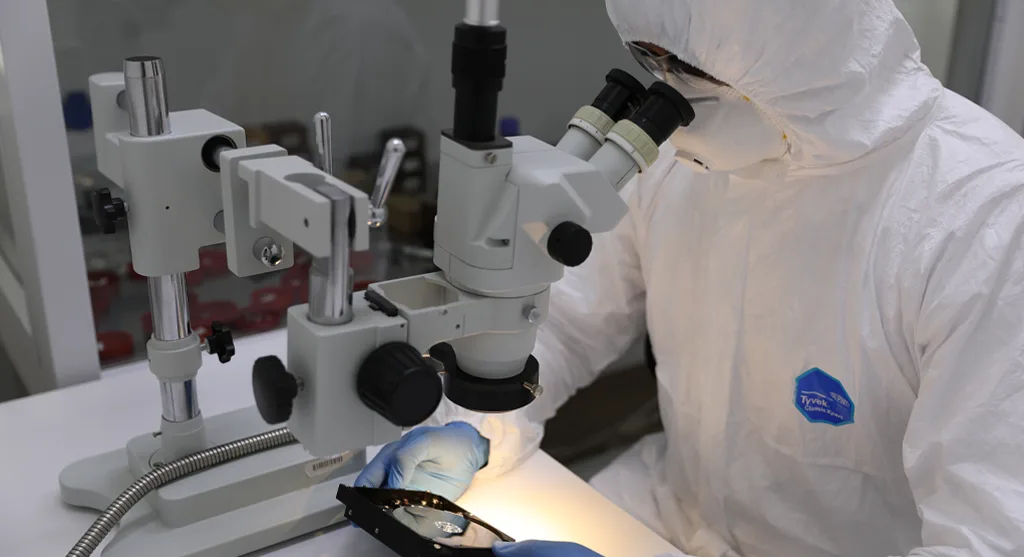Modern businesses and individuals generate massive amounts of data every day. Storing and sharing this information safely is a growing challenge. Traditional storage devices often fail to provide the accessibility and reliability teams need.
Network Attached Storage (NAS) offers a better approach. It connects to your network, allowing multiple users to access and manage files from any device. NAS helps you centralize, protect, and organize data efficiently.
In this post, you’ll learn what NAS devices are, their main advantages, and why they’re an essential part of modern data management.

What Is a NAS Device?
A Network Attached Storage (NAS) device is a dedicated data storage system connected to your network. Unlike a regular external drive that connects to one computer, NAS allows multiple users and devices to access files at the same time.
It operates like a private cloud within your office or home network. You can store, share, and back up files without relying on internet-based storage.
Most NAS systems come with multiple hard drives configured in RAID for redundancy and performance.
This makes NAS an ideal choice for users who need secure, centralized storage that’s always accessible and easy to manage.
Core Advantages of NAS Devices
NAS devices offer several benefits that make them a reliable choice for both personal and business use:
Centralized Data Access: Store all your files in one place and access them from any connected device.
Enhanced Data Protection: Most NAS systems support RAID configurations, helping protect data against drive failures.
Scalability: Easily expand your storage by adding more drives as your data grows.
Remote Accessibility: Access files securely over the internet, just like a private cloud system.
Energy Efficiency: NAS consumes less power than traditional servers, making it cost-effective and sustainable.
Automatic Backups: Schedule regular backups to safeguard critical data without manual effort.

NAS for Businesses and Teams
For businesses, a NAS system simplifies file sharing and collaboration. Teams can access the same data from different devices without delays or duplicate copies. This improves workflow and keeps files organized in one secure location.
NAS also supports automated backups, reducing the risk of data loss caused by hardware failure or human error.
Many models include advanced features like user permissions, version control, and cloud synchronization, making them ideal for both small offices and large organizations.
If you’re comparing storage options for your team, explore leading brands in our guide on QNAP vs Synology.
Fast turnaround times for business-critical data
NAS vs Regular External Drives
While both NAS and external drives store data, their functionality differs significantly.
A regular external hard drive connects directly to one computer, limiting access to a single user at a time.
NAS, on the other hand, connects to your network, allowing multiple users to read and write files simultaneously.
NAS also provides better redundancy through RAID configurations, protecting data even if one drive fails. External drives lack this level of protection and scalability.
If you’d like to understand the technical difference in more detail, read our full comparison on NAS Hard Drive vs Regular Drive.

Common NAS Data Risks and Failures
Even though NAS devices are reliable, they’re not immune to data loss. Some of the most common risks include:
Drive Failures – A single disk failure in RAID can lead to partial or complete data loss if not replaced promptly.
Power Surges or Outages – Sudden power interruptions can damage the drives or corrupt stored files.
RAID Corruption – Misconfigurations, rebuild errors, or controller failures can make the NAS array unreadable.
Firmware or Software Issues – Outdated firmware or system crashes may prevent the device from booting.
User Errors – Accidental deletions, improper reconfiguration, or unplanned resets often result in lost files.
If you’ve already faced one of these issues, learn how recovery works in our post on NAS Failure and Recovery.
Professional NAS Data Recovery Services
When a NAS device fails, attempting to rebuild or repair it on your own can make recovery more difficult. Professional evaluation is the safest way to prevent permanent data loss.
At RAID Recovery Services, we specialize in restoring data from all NAS brands and RAID configurations. Our engineers work in certified cleanroom environments to diagnose mechanical, electronic, and logical failures with precision.
Whether your NAS has suffered a drive crash, firmware error, or controller malfunction, our team can recover data safely and efficiently.
For a real example of successful recovery, explore our NAS Data Recovery service.

Conclusion: Reliable and Scalable Storage Choice
NAS devices offer a practical balance of flexibility, security, and performance. They provide centralized access, backup automation, and scalable storage options that fit both home and business environments.
While NAS systems are dependable, failures can still occur due to hardware or software issues. Understanding these risks and knowing when to call professionals ensures your data remains safe.
If you ever face NAS failure or data inaccessibility, contact RAID Recovery Services. Our specialists can assess the issue and recover your critical files with care and precision.
Trust the experts with proven results
Frequently Asked Questions
What is the main advantage of using a NAS device?
The main advantage of a NAS device is centralized storage. It allows multiple users to access, share, and back up data across a network, improving efficiency and collaboration.
Is NAS better than an external hard drive?
Yes. NAS devices offer shared access, RAID protection, and scalability that regular external hard drives lack. They’re ideal for businesses or teams managing large volumes of data.
Can NAS devices protect data from drive failure?
Most NAS systems use RAID configurations that duplicate data across multiple drives. This setup helps maintain data integrity even if one drive fails.
Who should use a NAS device?
NAS is suitable for small businesses, offices, and home users who need secure, centralized file access. It’s especially useful for companies handling sensitive or frequently shared data.
What should I do if my NAS device fails or data becomes inaccessible?
Stop using the device and contact RAID Recovery Services for a professional evaluation. Our engineers specialize in NAS data recovery and can safely restore your files.